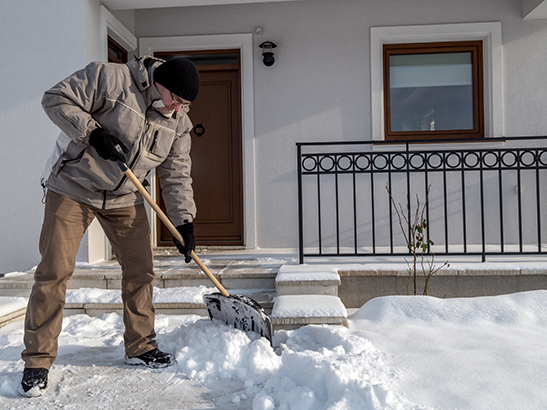Use Caution in Cold Weather
As cold weather moves in, it’s important to take preventive measures to combat winter-related health problems. Keep yourself and your family safe in the cold, winter weather to avoid serious and life-threatening health problems. Two weather-related conditions are hypothermia and frostbite. According to the Centers for Disease Control and Prevention, anyone can be affected by extreme cold weather, although infants and older adults are particularly at risk. If you believe you or a loved one has frostbite or hypothermia, seek medical care immediately.
Hypothermia
Hypothermia occurs when your body loses heat faster than it can produce it in cold temperatures. Extended time exposed to cold temperatures zaps your body’s stored energy. Low body temperatures affect your ability to think clearly and move well. Your may not know you have hypothermia. If the body temperature drops below 95 degrees, seek medical attention immediately.
Adult warning signs
- Shivering
- Exhaustion or drowsiness
- Confusion, memory loss, or slurred speech
- Fumbling hands
Infant warning signs
- Cold, bright red skin
- Very low energy
Frostbite
Frostbite, an injury to the body caused by freezing, results in loss of color and feeling in affected areas. Most common body parts affected include the nose, ears, cheeks, chin, fingers, and toes. Get out of the cold weather or protect exposed skin at the first signs of redness or pain in any skin area, as this may be the beginning stages of frostbite.
Warning signs
- White or grayish-yellow skin area
- Unusually firm or waxy skin
- Numbness
